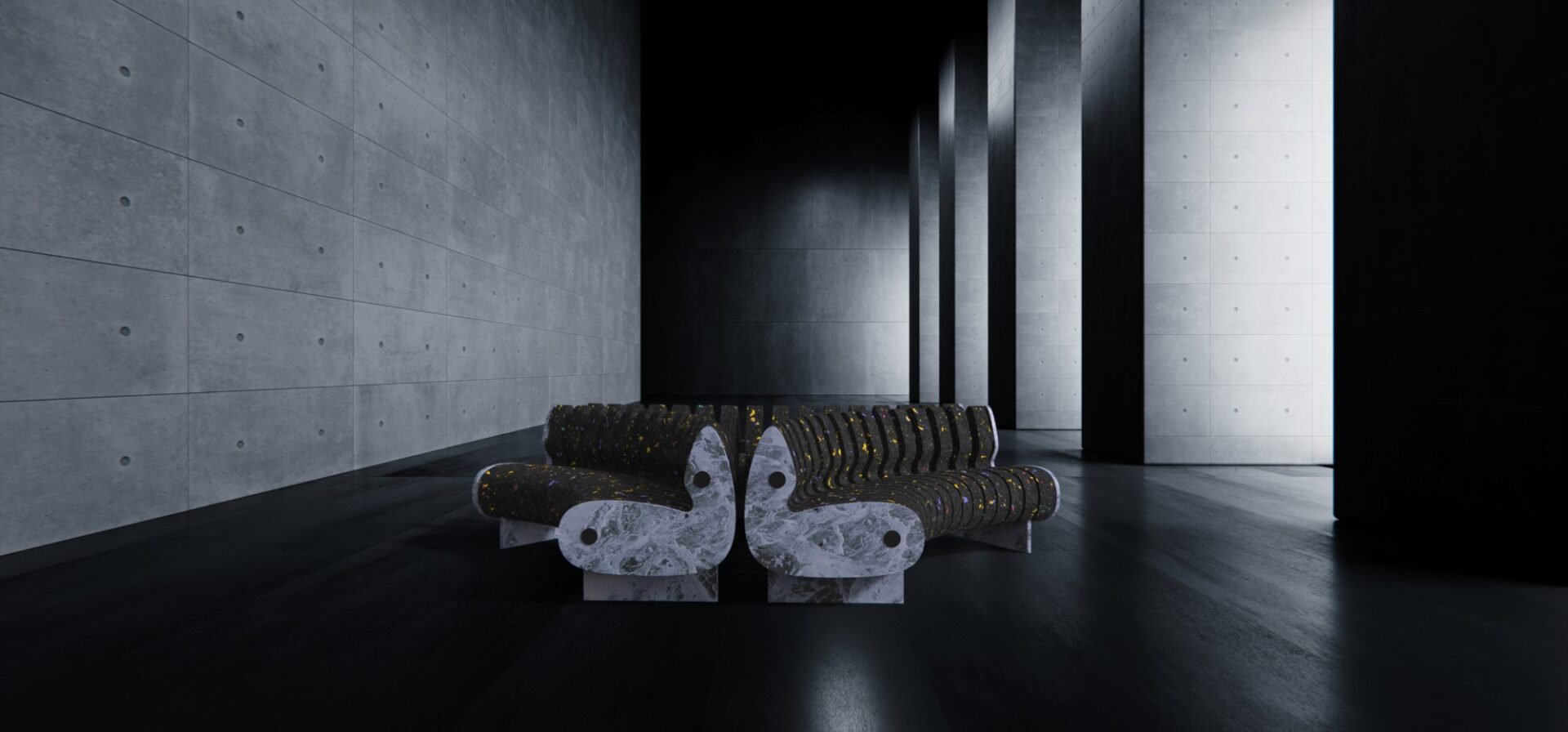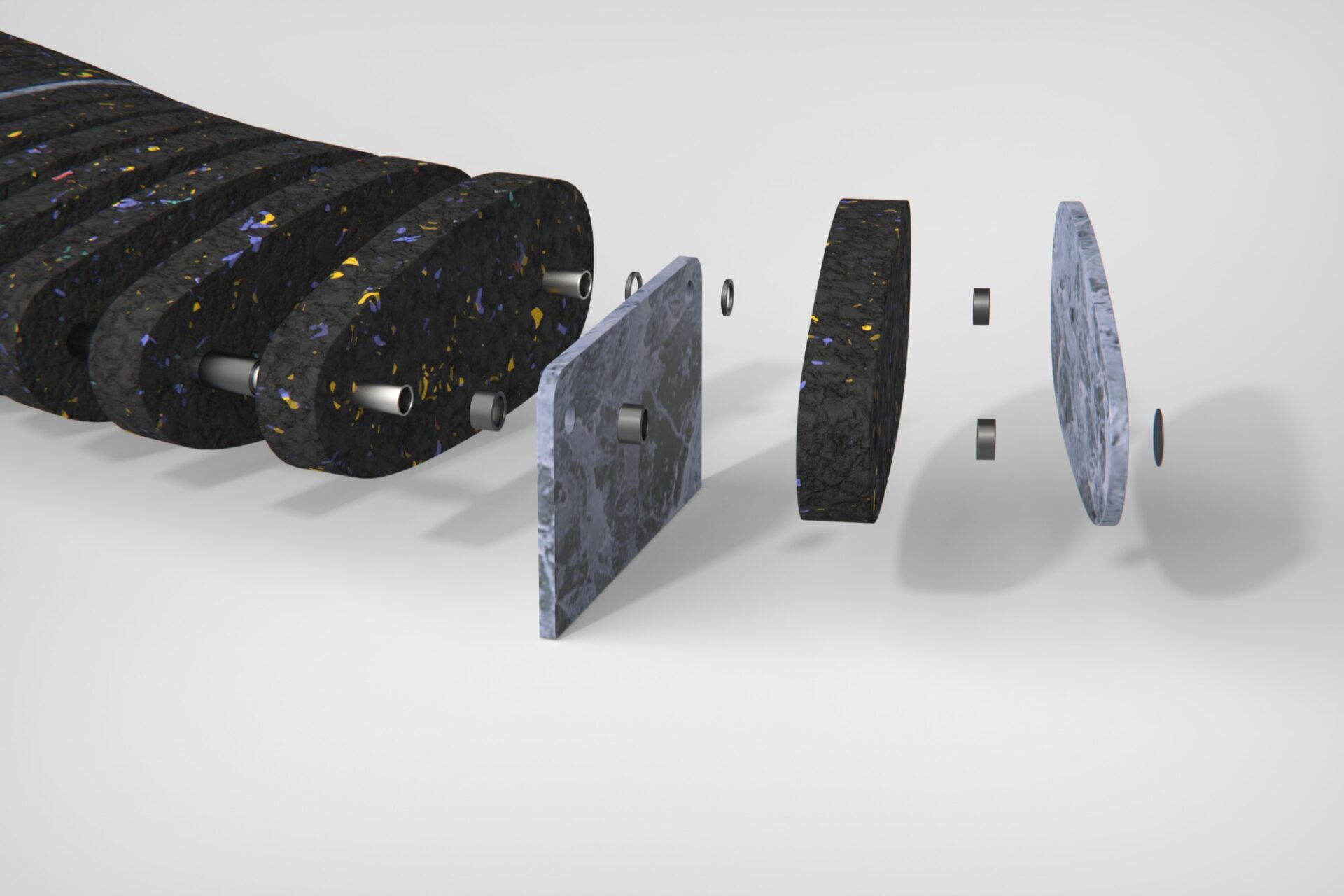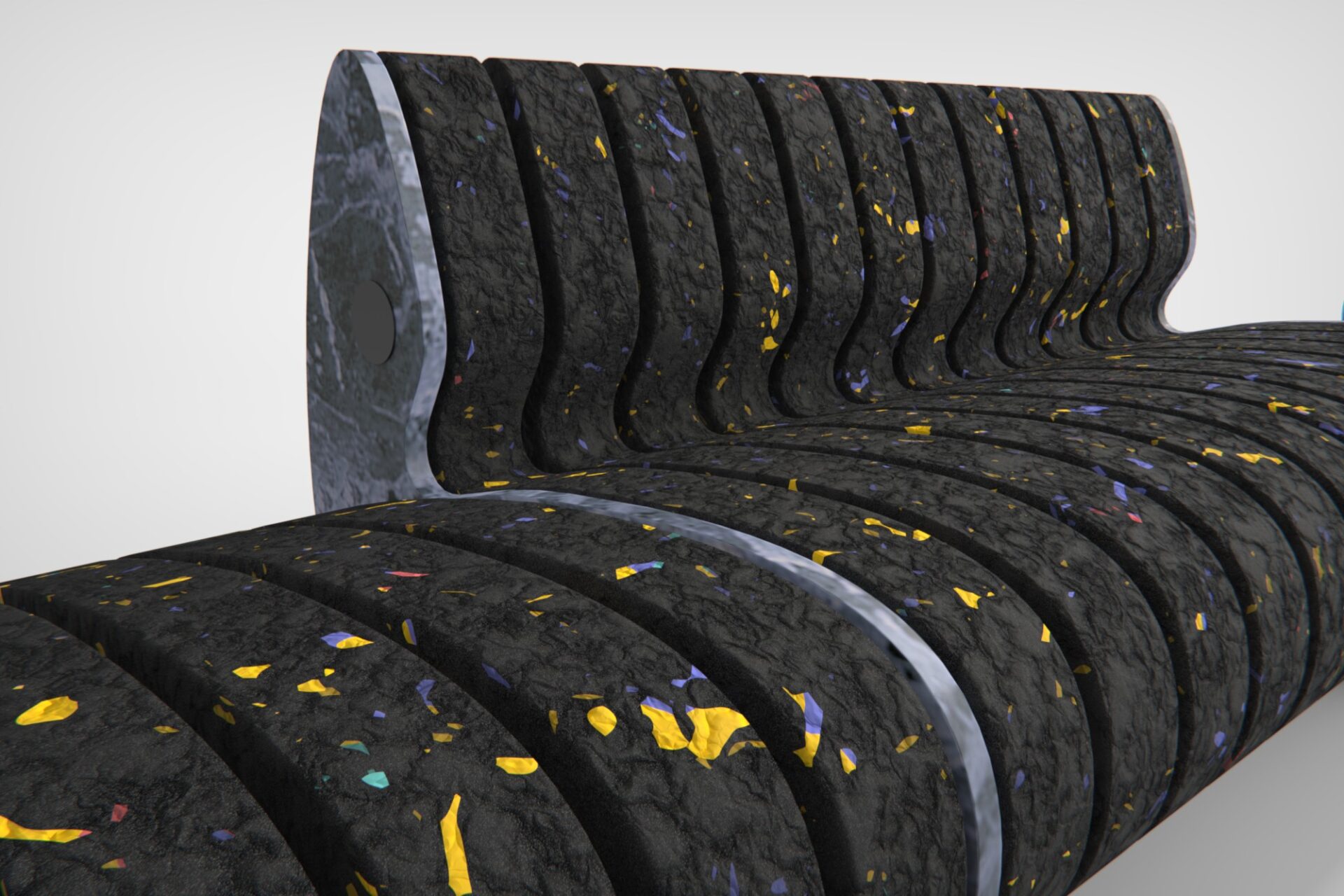Public Seats from Waste
An eco-design studio called Balance is Motion from the Czech Republic creates a prototype for public seating using waste foam material called Polimix. This project won the first place in the Public Space category at the ROGUILTESSPLASTICS 2022 at the Milan Design Week 2022.
 SCALE has always loved the intent and passion behind the RoGUILTLESSPLASTIC, an international project founded and curated by Rossana Orlandi and her daughter Nicoletta Orlandi Brugnoni.
SCALE has always loved the intent and passion behind the RoGUILTLESSPLASTIC, an international project founded and curated by Rossana Orlandi and her daughter Nicoletta Orlandi Brugnoni.
The Foamy project, the winner in the Public Space Category of the ROGUILTLESSPLASTICS PRIZE 2022 was envisioned by the designers at Balance is Motion as a new and exciting life for waste foam material Polimix.
“Polimix was supplied by the local Czech manufacturer Yate. We designed a small collection of furniture for indoor use in public spaces like libraries, hospitals etc,” explains Eliska Knotkova, one of the four designers in charge of material and environmental assessment at Balance is Motion.
Balance is Motion offers comprehensive eco design services to clients from various industries (fashion, furniture, architecture, events etc).
“Ecodesign means that we assess the environmental aspects of a product and take it into account during the design phase. Thanks to that we can reduce up to 80 % of product’s environmental footprint. We use analytic Life Cycle Assessment which enables us not only to calculate the environmental footprint of designed product but also helps us find environmental hotspots in its life cycle. This is how we avoid greenwashing,” explains Knotkova about their eco green company.
This is the first product the studio has envisioned and Knotkova explains how the team were inspired to make a product from waste, “Initially, we were inspired by the material Polimix, which is a recycled polyethylene foam. It is made of offcuts from the production of foam pads. Polimix not only has great functional properties, but also has a distinctive appearance.”
 The team wanted to use the material in a novel way and highlight its uniqueness, so they designed a collection of sofas with individual segments that could be replaced when there is wear and tear.
The team wanted to use the material in a novel way and highlight its uniqueness, so they designed a collection of sofas with individual segments that could be replaced when there is wear and tear.
“In order to increase the sustainability of our design, in addition to the use of recycled materials, we also applied other principles of the circular economy. Foamy has a modular construction which enables easy repair and thus leads to prolonged service life. Thanks to the fact that it consists of individual segments that are spaced apart, it is not only easy to repair, but also the material consumption is optimised while maintaining the function. The modularity also leads to reduced space needed for transport and storage.
 The unique design of the seating makes it possible for each part to be replaced whenever there is wear and tear. The main material used in the seating arrangement is pre-consumer waste from the manufacturing company Yate which produces various foam products.
The unique design of the seating makes it possible for each part to be replaced whenever there is wear and tear. The main material used in the seating arrangement is pre-consumer waste from the manufacturing company Yate which produces various foam products.
“The second recycled plastic material (the hard parts) used in our design is made of post-consumer mixed plastic waste boards by Plastic Guys,” she says.
While the product has solicited numerous enquiries, Foamy is yet to be used on a large scale on any project.
 “We currently work on Foamy in cooperation with Yate company. We already have interest from several developers who want to use Foamy sofas in the projects they are building. It hasn’t been used yet, because we only recently designed it for the competition RO Plastic Prize,” says Knotkova.
“We currently work on Foamy in cooperation with Yate company. We already have interest from several developers who want to use Foamy sofas in the projects they are building. It hasn’t been used yet, because we only recently designed it for the competition RO Plastic Prize,” says Knotkova.
The ROGUILTLESSPLASTIC project comes with a strong intent to engage designer and creatives communities to give new life to plastic and all kind of waste, by exploring the endless possibilities of transformation. The Ro Plastic Prize is the international Award of RoGUILTLESSPLASTIC that aims to involve an increasingly broad public challenging worldwide communities of designers, innovators, entrepreneurs, start-ups, changemakers, creators, scientists, researchers, developers and communication experts who are passionate about creating extraordinary impact by proposing solving projects in the field of re-waste.
“The Public Space category aims to create an innovative and unexplored circle to reward our local communities with recycling projects from plastic waste collected from cities and public spaces. Designers must propose projects that are a synergy of durability, ergonomics, accessibility, safety, while creating beauty and added value for urban and public spaces,” explains Rossana Orlandi.




